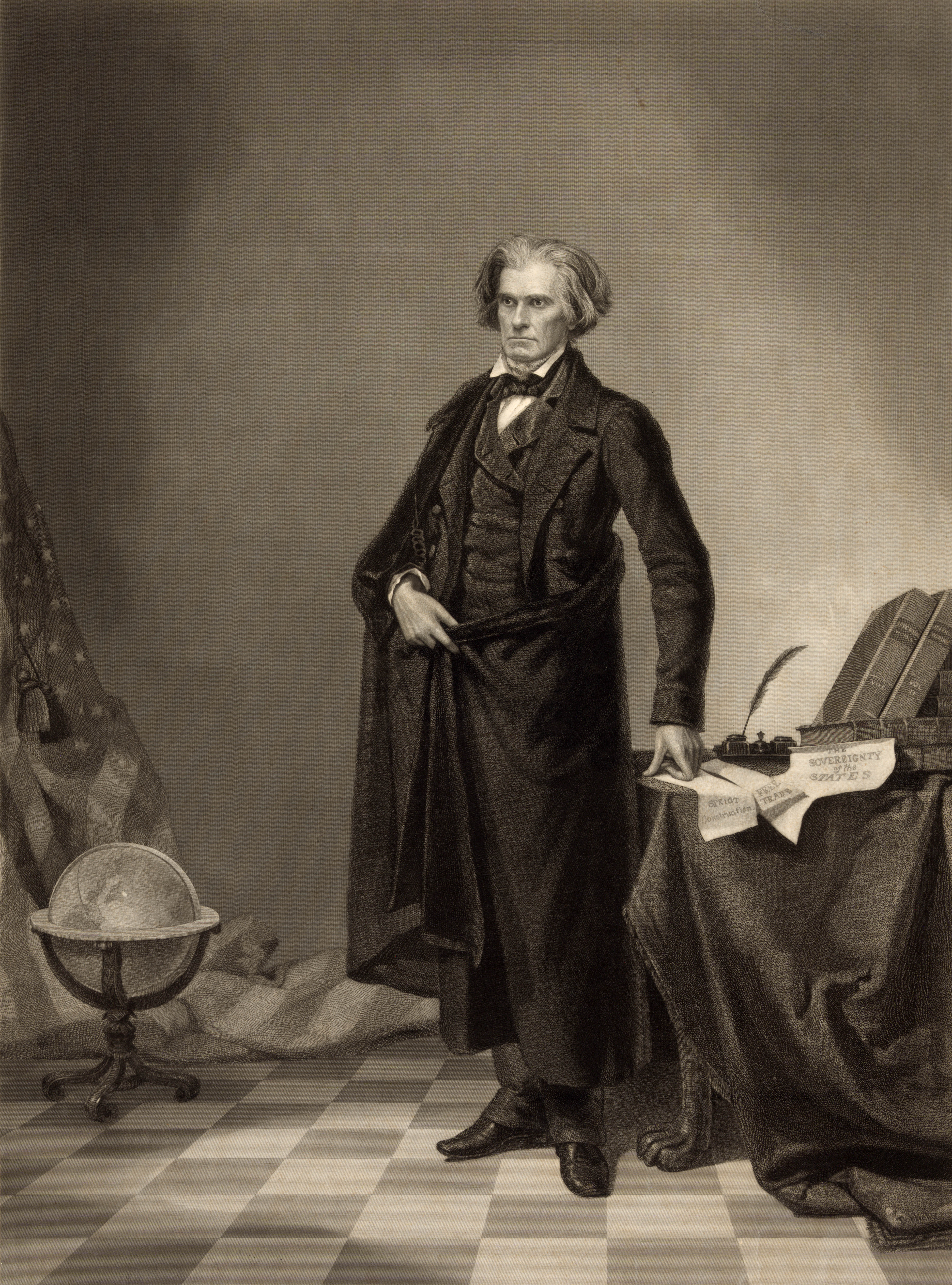Calhoun, John Caldwell (1782-1850), of South Carolina, was a major American political figure before the American Civil War. Calhoun played an important part in national affairs for 40 years. He was vice president of the United States from 1825 to 1832, and he ran for president several times but never won. He also served as a member of the U.S. House of Representatives and of the Senate, and as secretary of war and secretary of state.

Calhoun is best known for his doctrine of states’ rights, in which he claimed that each U.S. state had a right to nullify (reject) national laws. He wished to use the doctrine to protect slavery and other Southern interests without requiring the Southern States to secede (withdraw) from the Union. Later, however, the doctrine helped bring on the Civil War (1861-1865).
Early career.
Calhoun entered national politics as a member of the House of Representatives from 1811 to 1817. He was an ardent nationalist and, together with other young congressmen, was called a War Hawk for advocating the War of 1812 (see War of 1812 (The War Hawks) ). He actively supported the government’s postwar program, which included a protective tariff (tax on imported goods), a national bank, and an enlarged army and navy. He improved the Army’s organization while secretary of war from 1817 to 1825.
Calhoun was the vice presidential running mate of both Andrew Jackson and John Quincy Adams in 1824. He won by a landslide, but the vote for president was indecisive. The House of Representatives picked Adams. In 1828, Jackson again opposed Adams for president, and Calhoun served as Jackson’s vice presidential running mate. Jackson and Calhoun won the election. But after Jackson became president, the two men quarreled, especially over Calhoun’s support of nullification (see Jackson, Andrew (Split with Calhoun) ).
Southern leader.
Calhoun felt that South Carolina, and the South in general, were being exploited by the nation’s protective tariff. The tax allowed Northern manufacturers to compete with more efficient European producers, but it forced Southerners to pay higher prices for manufactured goods.
Calhoun argued that because state conventions had originally ratified the Constitution of the United States, such conventions could also nullify any national law by declaring it unconstitutional. He hoped to use nullification to defeat protective tariffs and to preserve slavery and other Southern interests.
After Congress adopted another protective tariff in 1832, South Carolina acted on Calhoun’s theory of states’ rights and nullified the new tariff. This action caused a constitutional crisis. Calhoun resigned as vice president in December 1832 and entered the Senate as the elected spokesman of South Carolina. He had no wish to destroy the Union and worked hard for Henry Clay’s compromise of 1833. This compromise quieted the tariff issue, but it did not resolve the states’ rights problem Calhoun had raised (see Nullification ).
Calhoun served in the Senate until 1843. In 1844, he became secretary of state under President John Tyler. He served until March 1845 and then returned to the Senate, serving there until his death on March 31, 1850. In his later years, Calhoun strongly supported slavery and its extension and encouraged the annexation of Texas.
Calhoun was born on March 18, 1782, near Abbeville District, South Carolina, and was an honor graduate at Yale College in 1804. He practiced law in Abbeville District until his election to the South Carolina Legislature in 1808. A statue of Calhoun represents South Carolina in the U.S. Capitol.
